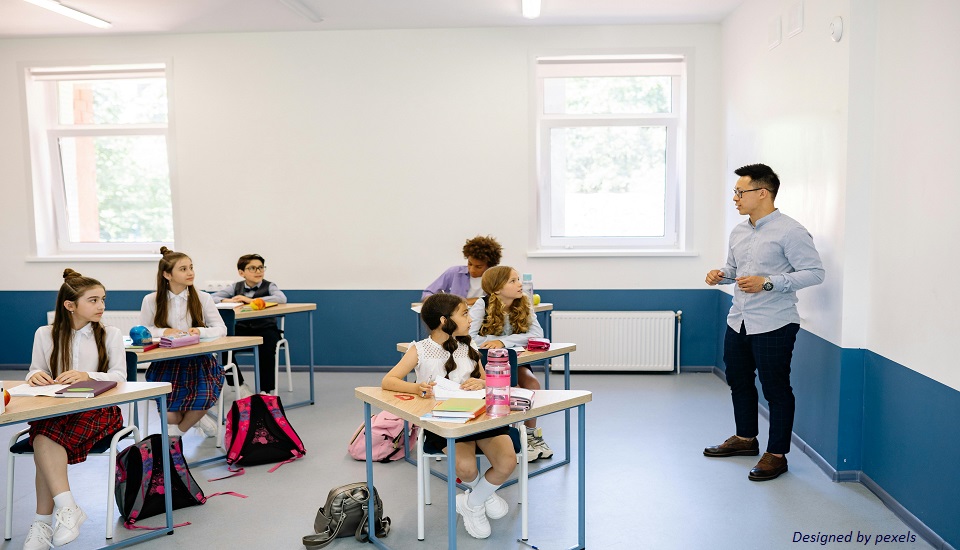In every teacher’s career, they face a moment when a well-planned lesson doesn’t go as expected. Whether the class isn’t engaged or the learning outcomes fall short, it can be disheartening.
But these experiences don’t define teachers, because those moments offer a chance for growth. Those teachers who have pursued courses like the International Teaching Diploma Course, knows it really well.
In this blog post, we will get to know how by embracing a reflective approach and making targeted adjustments, teachers can turn lesson flops into valuable learning opportunities.
1. Start with Reflection: Understand What Went Wrong
If your lesson didn’t go as planned, then you should take a pause and reflect. It’s easy to feel frustrated, but taking a moment to analyse what happened will provide clarity.
Key Reflection Questions:
- What were my expectations for student engagement, and how did reality differ?
- At what point did students lose interest or become distracted?
- Were my materials and tasks clearly aligned with the learning objectives?
- What support or scaffolding could I have provided to make the lesson more effective?
By answering these questions, teachers can identify the gaps and use this insight to improve future lessons.
2. Make Adjustments: Act on Your Insights
Reflection is only the first step. Once you’ve identified what didn’t work, it’s time to make changes. These adjustments can be small but impactful, focusing on clarity, engagement, and structure.
- Adjusting Lesson Structure
If students struggled with directions, try rewording them and providing step-by-step guides. You can make it more engaging for students with hands-on activities or discussions to keep them involved.
- Supporting Autonomy and Participation:
You can also consider allowing your students to take ownership of their learning more. This could mean giving them choices in projects or creating opportunities for peer feedback and collaboration.
3. Enhance Student Engagement
One of the major reasons that many teachers’ lesson fails is because of less student engagement. Here’s how you can keep students interested and motivated:
- Use Real-Life Examples: Tie lessons to real-world scenarios that are relevant to students’ lives.
- Incorporate Active Learning: Instead of just lecturing, involve students in problem-solving activities and collaborative tasks.
The key is to make learning interactive and connected to students' experiences, keeping them motivated and focused.
4. Clarify Learning Objectives
Most of the time, teachers face a lesson flop because their students are not clear about the purpose of the lesson being taught. To avoid this, make sure your learning objectives are specific and easy to understand.
- Clear and Visible Objectives: State the goals at the beginning of the lesson and reference them throughout. Also, ensure the activities align directly with these objectives, so students see how they are working toward specific outcomes. When students know what they’re working towards, they are more likely to stay on track and engaged.
5. Collaborate and Seek Feedback
If a lesson didn’t go as planned, it can be helpful to collaborate with colleagues. You can consider which teaching strategies work and what didn’t with your peers. You can also attend professional development sessions or join peer observation groups to learn new techniques.
By exchanging ideas and experiences, teachers can develop more effective teaching methods and avoid repeating the same mistakes.
6. Invest in Professional Development
Sometimes, bouncing back from a lesson flop requires gaining new skills or perspectives. Upgrading yourself with time by pursuing courses like the International Teaching Diploma course can help you to stay upgraded with the latest teaching trends and strategies.
Why Professional Development Helps:
- Expand your skill set: Explore new teaching strategies and technologies that can make a difference in your classroom.
- Stay current with trends: Participate in educational administration and management programs to keep up with the latest research on teaching practices.
By continually learning and adapting, teachers can approach future lessons with more confidence and better tools.
Final Thoughts
If you have faced that your lesson flopped, then don’t get disheartened, instead look it as an opportunity. By reflecting on what went wrong, making the right adjustments, and engaging with your students more effectively, you can turn any teaching challenge into a success.
By pursuing courses like the International Teaching Diploma course online and continuously improving through reflection, collaboration, and professional development, you’ll transform lesson mishaps into stepping stones for greater classroom success.
Embrace these opportunities, and remember that growth in teaching often comes from learning through challenges.
Written By : Sanjana















